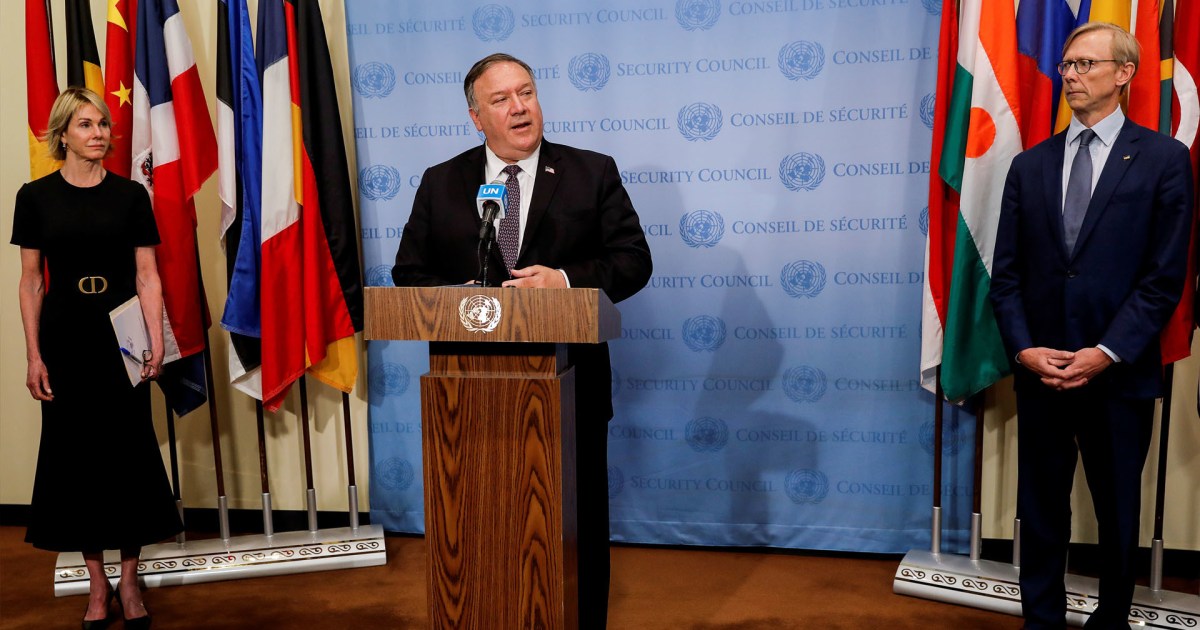Washington has defended its demand to re-impose international sanctions on Iran that the Iranian nuclear deal is not legally binding, accusing Beijing, Moscow, London and Paris of "breaching their duties", while the joint committee of the agreement announced a meeting days later in Vienna.
The US special envoy to Iran, Brian Hook, told reporters that the Iranian nuclear deal is not legally binding, and it is a political agreement, adding that the United States does not need permission from anyone to reactivate sanctions on Iran that will increase pressure on it to return to the negotiating table.
Hook also made it clear that his country was the only one to submit a proposal to extend the arms embargo on Iran, but the United Nations chose the more difficult method.
Hook pointed out that the end of the effects of the arms embargo on Iran cannot support the stability of the world, and that the United States needs a new deal that guarantees security for itself and its allies.
The US envoy considered that the other members of the UN Security Council "failed" a week ago when they did not extend the embargo on Iran's arms delivery, which ends soon, and said, "China, Russia, France and Britain decided to ignore the opinion of the Gulf Cooperation Council," which includes "countries closest to the danger."
He considered that the Security Council "had a responsibility to respect their opinion (of some Gulf states) in extending the arms embargo," adding that "this was a disappointing breach of its duty."
This came after US Secretary of State Mike Pompeo said in a television interview that Washington is preparing to prevent Russia and China from making any attempt to "violate the sanctions" imposed on Iran, and that his country is disappointed that its European allies have not supported its efforts, as the US ambassador to the United Nations said. Kelly Kraft - for a German newspaper - The behavior of her European allies in this issue is "disappointing".
The Russian Foreign Ministry described the notification submitted by the United States to the Security Council legally false, saying that the Security Council had no reason to accept the appeal to consider the American notification.
It also described the escalation of tension over Iran as a mistake and leads to a dead end, calling on Washington to dialogue instead of threats.
The European Union’s external departments announced that the Joint Committee on the Nuclear Agreement with Iran will hold a meeting on the first of next September in Vienna under the presidency of the European Union, with the participation of representatives from China, France, Germany, Russia, Britain and Iran.

